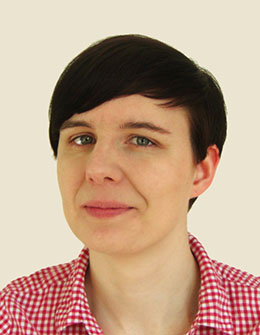PhD Katharina Rasch
CONGRATULATIONS ON YOUR GRADUATION
Published Oct 11, 2013
Katharina Rasch came from Germany to Sweden and KTH in 2009 for PhD studies in smart home technology. Her aim is to build smarter homes that can assist people in their everyday lives. Now she has defended her PhD thesis where she proposes a recommender system for smart homes that continuously identifies how it can assist inhabitants with their activities, and actions the home can perform for the user.

Where are you from and where did you study before coming to KTH?
– I am originally from Germany and got a diploma equivalent to Master's degree in Applied Computer Science from Technical University Chemnitz. I came to KTH in 2009 to do my PhD.
What is your topic and why did you choose it?
– My research is on smart home technology. I chose this topic because it offers such an interesting blend of different research areas, ranging from distributed computing to machine learning and Human-Computer Interaction.
Describe your topic in short.
– The aim of our research community is to build smarter homes that can assist people in their everyday lives. Smart homes are interesting in particular for people that need help with some tasks, but still want to live an independent life in their own home. Unfortunately, smart homes today suffer from complicated user interfaces, inflexible home configuration and complicated installation procedures.
Tell us something about your results.
– In my PhD thesis I propose a recommender system for smart homes. The system continuously identifies how it can assist inhabitants with their activities and recommends actions the home can perform for the user. The recommendations can be used to greatly simplify smart home control by hiding all unneeded functionality. The inflexible manual programming of smart homes is replaced by automatic learning of user habits. In the thesis I also propose an installation assistant for smart homes that simplifies installing new devices in smart homes.
What will the future bring for your research topic?
– I think that with aging populations in many countries, smart home technology will become much more important in the future. Before that can happen, however, we still have to improve the usability of such homes, so that everybody can live there, regardless of their technical background.
What are your plans for the future?
– I will take a few months off for traveling. I might be doing a postdoc afterwards.

